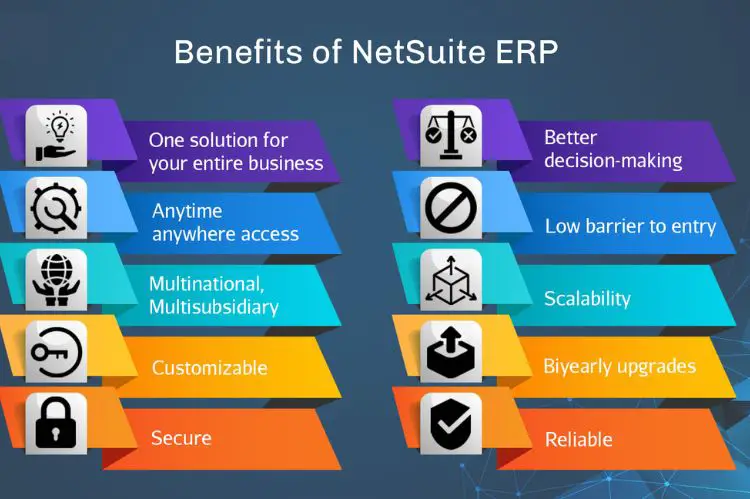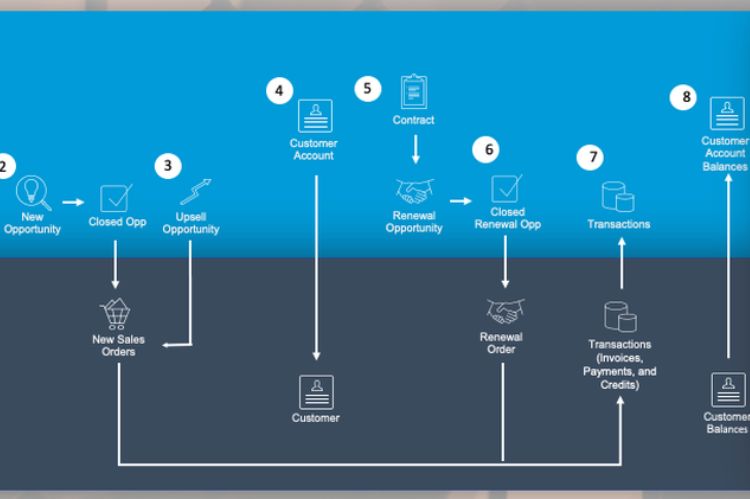NetSuite, a leading cloud-based ERP (Enterprise Resource Planning) platform, has revolutionized how businesses manage their operations, finance, and customer relationships. In this article, we will provide a comprehensive overview of NetSuite and explore how this robust solution can empower organizations to achieve unparalleled business agility.
From its key features and benefits to successful implementation strategies and real-world case studies, we will delve into the transformative power of FNetSuite in streamlining processes, optimizing resources, and driving growth.
Understanding NetSuite

NetSuite is a cloud-based ERP solution that integrates various business functions into a single, unified platform. It offers a comprehensive suite of modules, including financial management, order management, inventory management, and CRM (Customer Relationship Management). By consolidating critical business processes, NetSuite provides organizations with real-time visibility into operations, enabling data-driven decision-making and facilitating collaboration across departments.
Advantages of NetSuite

Adopting NetSuite brings many benefits for organizations seeking business agility. First, it offers increased visibility into business operations, allowing stakeholders to access real-time data and make informed decisions. NetSuite streamlines a process and reduces manual work, improving efficiency and productivity.
With enhanced financial management capabilities, businesses gain accurate and timely financial reporting, budgeting, and compliance. NetSuite’s CRM functionality empowers organizations to manage customer relationships, align sales and marketing efforts, and enhance the overall customer experience.
Key Features and Functionality
NetSuite encompasses a range of key features and functionalities to support various business operations. Its financial management capabilities include general ledger, accounts payable and receivable, budgeting, and financial reporting. Order management functionalities enable efficient processing of orders, tracking of sales, and management of customer relationships.
NetSuite’s inventory management tools provide control and visibility into stock levels, procurement, and fulfillment processes. NetSuite offers CRM functionalities for managing leads, opportunities, and customer support.
Successful Implementation Strategies

A successful NetSuite implementation requires careful planning and execution. Organizations should conduct a thorough assessment of their existing processes, identifying areas for improvement and customization. Process mapping and data migration strategies play a crucial role in ensuring a smooth transition.
Selecting the appropriate NetSuite edition and customization options aligned with business needs is essential. Effective change management strategies should be in place to ensure user adoption and alignment with business goals. Ongoing support and training considerations further maximize the value of NetSuite.
Leveraging Partnership for Expert NetSuite Services
Partnering with a renowned industry leader such as getgsi.com, can bring a wealth of expertise and experience to your NetSuite services. Leveraging a deep understanding of enterprise applications, automation, cloud, and cybersecurity, a trusted partner is well-equipped to assist organizations with their NetSuite implementation and optimization needs.
Their team of skilled professionals possesses in-depth knowledge of NetSuite’s capabilities and can provide comprehensive guidance throughout the entire lifecycle of a NetSuite project.
From initial assessment and planning to customization, integration, data migration, training, and ongoing support, a partnership offers tailored solutions that align with the unique requirements of each organization. By forming a partnership with an expert in Netsuite services your. businesses can confidently navigate the complexities of NetSuite and unlock the full potential of the platform to drive operational excellence and achieve their business objectives.
Real-World Case Studies
Many organizations have successfully leveraged NetSuite to achieve business agility and growth. For example, a manufacturing company streamlined its operations by consolidating financials, supply chain management, and order processing within NetSuite.
As a result, they improved efficiency, reduced costs, and enhanced customer satisfaction. An e-commerce company used NetSuite’s CRM capabilities to centralize customer data and streamline sales and marketing efforts, resulting in increased revenue and customer retention. These case studies highlight the versatility and transformative potential of NetSuite across various industries.
Integrations and Ecosystem

NetSuite’s flexibility and scalability are further enhanced through integrations with third-party applications. The SuiteCloud platform allows customization and extension of NetSuite’s capabilities to address specific business requirements. NetSuite’s partner ecosystem provides specialized industry solutions, offering organizations access to additional tools and expertise to further optimize their operations.
Conclusion
NetSuite’s cloud-based ERP platform empowers organizations to achieve business agility by streamlining operations, enhancing financial visibility, and delivering exceptional customer experiences. With its comprehensive suite of modules and key functionalities, NetSuite provides a unified view of business operations and enables data-driven decision-making.
By successfully implementing NetSuite and leveraging its transformative power, organizations can unlock their full potential, stay competitive in a dynamic business landscape, and embark on a journey of sustainable growth.
Whether it’s financial management, order fulfillment, inventory control, or customer relationship management, NetSuite offers a comprehensive solution for modern businesses. Embrace NetSuite to unleash business agility and position your organization for success.
Read Next: The Importance of Firewall Protection for Small Business Owners